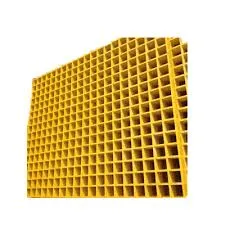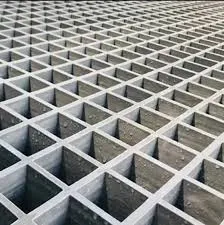
-
 Afrikaans
Afrikaans -
 Albanian
Albanian -
 Amharic
Amharic -
 Arabic
Arabic -
 Armenian
Armenian -
 Azerbaijani
Azerbaijani -
 Basque
Basque -
 Belarusian
Belarusian -
 Bengali
Bengali -
 Bosnian
Bosnian -
 Bulgarian
Bulgarian -
 Catalan
Catalan -
 Cebuano
Cebuano -
 China
China -
 China (Taiwan)
China (Taiwan) -
 Corsican
Corsican -
 Croatian
Croatian -
 Czech
Czech -
 Danish
Danish -
 Dutch
Dutch -
 English
English -
 Esperanto
Esperanto -
 Estonian
Estonian -
 Finnish
Finnish -
 French
French -
 Frisian
Frisian -
 Galician
Galician -
 Georgian
Georgian -
 German
German -
 Greek
Greek -
 Gujarati
Gujarati -
 Haitian Creole
Haitian Creole -
 hausa
hausa -
 hawaiian
hawaiian -
 Hebrew
Hebrew -
 Hindi
Hindi -
 Miao
Miao -
 Hungarian
Hungarian -
 Icelandic
Icelandic -
 igbo
igbo -
 Indonesian
Indonesian -
 irish
irish -
 Italian
Italian -
 Japanese
Japanese -
 Javanese
Javanese -
 Kannada
Kannada -
 kazakh
kazakh -
 Khmer
Khmer -
 Rwandese
Rwandese -
 Korean
Korean -
 Kurdish
Kurdish -
 Kyrgyz
Kyrgyz -
 Lao
Lao -
 Latin
Latin -
 Latvian
Latvian -
 Lithuanian
Lithuanian -
 Luxembourgish
Luxembourgish -
 Macedonian
Macedonian -
 Malgashi
Malgashi -
 Malay
Malay -
 Malayalam
Malayalam -
 Maltese
Maltese -
 Maori
Maori -
 Marathi
Marathi -
 Mongolian
Mongolian -
 Myanmar
Myanmar -
 Nepali
Nepali -
 Norwegian
Norwegian -
 Norwegian
Norwegian -
 Occitan
Occitan -
 Pashto
Pashto -
 Persian
Persian -
 Polish
Polish -
 Portuguese
Portuguese -
 Punjabi
Punjabi -
 Romanian
Romanian -
 Russian
Russian -
 Samoan
Samoan -
 Scottish Gaelic
Scottish Gaelic -
 Serbian
Serbian -
 Sesotho
Sesotho -
 Shona
Shona -
 Sindhi
Sindhi -
 Sinhala
Sinhala -
 Slovak
Slovak -
 Slovenian
Slovenian -
 Somali
Somali -
 Spanish
Spanish -
 Sundanese
Sundanese -
 Swahili
Swahili -
 Swedish
Swedish -
 Tagalog
Tagalog -
 Tajik
Tajik -
 Tamil
Tamil -
 Tatar
Tatar -
 Telugu
Telugu -
 Thai
Thai -
 Turkish
Turkish -
 Turkmen
Turkmen -
 Ukrainian
Ukrainian -
 Urdu
Urdu -
 Uighur
Uighur -
 Uzbek
Uzbek -
 Vietnamese
Vietnamese -
 Welsh
Welsh -
 Bantu
Bantu -
 Yiddish
Yiddish -
 Yoruba
Yoruba -
 Zulu
Zulu
Jan . 12, 2025 09:40
Back to list
Other Products
Fiberglass reinforced plastic (FRP) chemical tanks have long been a preferred choice for industries requiring durable, corrosion-resistant, and cost-effective storage solutions for chemicals. Combining innovation with tried-and-tested technology, FRP tanks offer a superior alternative to traditional materials such as steel and concrete, especially in highly corrosive environments.
What further distinguishes FRP chemical tanks is their commitment to sustainability. The manufacturing process of FRP materials typically results in a lower carbon footprint compared to traditional metals, aligning with industries seeking eco-friendly solutions. Additionally, the long lifespan and reduced need for frequent replacements or repairs lower the overall environmental impact, reinforcing the corporate responsibility goals of modern businesses. As industries place greater emphasis on environmentally friendly practices, the utilization of FRP tanks supports both operational goals and environmental stewardship. Trust in FRP chemical tanks is bolstered by decades of successful deployment across various sectors. Industry professionals continue to advocate for their application, citing firsthand experiences in efficiency and cost savings. The collaborative approach between manufacturers and end-users ensures that FRP tanks are designed and implemented to exacting specifications, fostering a partnership that is both consultative and solution-oriented. This trusted relationship underscores the value of FRP chemical tanks not just as a product, but as a cornerstone for business operations that demand reliability and precision. In conclusion, FRP chemical tanks stand as a testament to the evolution of industrial storage technology. With unmatched resistance to corrosion, customizable design, robust manufacturing, and a focus on sustainability, these tanks represent the pinnacle of industry solutions for chemical storage. For businesses seeking to enhance their operational integrity while embracing modern advancements, FRP chemical tanks deliver on all fronts, ensuring safety, efficiency, and peace of mind for years to come.


What further distinguishes FRP chemical tanks is their commitment to sustainability. The manufacturing process of FRP materials typically results in a lower carbon footprint compared to traditional metals, aligning with industries seeking eco-friendly solutions. Additionally, the long lifespan and reduced need for frequent replacements or repairs lower the overall environmental impact, reinforcing the corporate responsibility goals of modern businesses. As industries place greater emphasis on environmentally friendly practices, the utilization of FRP tanks supports both operational goals and environmental stewardship. Trust in FRP chemical tanks is bolstered by decades of successful deployment across various sectors. Industry professionals continue to advocate for their application, citing firsthand experiences in efficiency and cost savings. The collaborative approach between manufacturers and end-users ensures that FRP tanks are designed and implemented to exacting specifications, fostering a partnership that is both consultative and solution-oriented. This trusted relationship underscores the value of FRP chemical tanks not just as a product, but as a cornerstone for business operations that demand reliability and precision. In conclusion, FRP chemical tanks stand as a testament to the evolution of industrial storage technology. With unmatched resistance to corrosion, customizable design, robust manufacturing, and a focus on sustainability, these tanks represent the pinnacle of industry solutions for chemical storage. For businesses seeking to enhance their operational integrity while embracing modern advancements, FRP chemical tanks deliver on all fronts, ensuring safety, efficiency, and peace of mind for years to come.
Next:
Related Products









